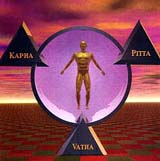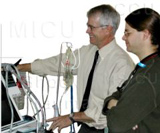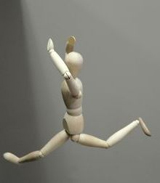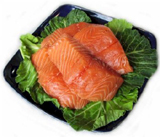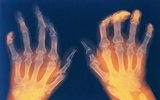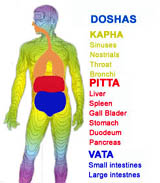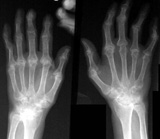Special features of rheumatoid arthritis in patients visiting an Ayurvedic hospital
Editor's note
This article deals with some variables that are important for treatment of patients by Ayurveda. It may help view this disease from a different and new angle for doctors of other systems...
Introduction
Poor understanding of the etiopathogenesis of rheumatoid arthritis (RA) and as a consequence, its management, has been a matter of concern to rheumatologists the world over. This has resulted in an extensive search in ancient literature on the disease and various new researches on the larger perspectives of the disease. An effort to get some clue or key for this dreaded disease has prompted many observational and prospective studies in rather insignificant looking areas. The relationship of RA to dietary patterns(1-8), weather conditions(9), psychological state (10), physical constitution (Deha Prakriti) (11), occupation and living conditions are examples of these efforts at finding a correlation between our micro-environment and causation of the disease. In many studies, these correlations have been established and have stressed the opinion that RA is a heterogeneous group of diseases presenting similar manifestations despite the differences in etiology. The ultimate response to treatment and its outcome depends on the differences in etiology and effect of the micro-environment upon the disease. One of the biggest responsibilities of the modern rheumatologist is to differentiate between cases where a more aggressive approach is required from the beginning to save the joint, and cases where minimal therapy may give a good result.The ancient literature of Ayurveda has supported the view of a heterogeneous etiology in RA and has identified weather, diet and various other factors as the causes of the disease (12). Ayurveda grades RA according to its management potential and points out associated features as the marker of poor or good outcomes in the disease. A more defined differentiation between the poor and good responders from a clinical point of view and between different sub-groups of RA from an etiopathological view ought to be of immense help to clinicians and patients (11). This would be of assistance in the prognosis of the disease also.
It is under this purview that RA patients reporting at an Ayurvedic hospital were screened.
Material and method
A year-round registry at a Kaaya chikitsaa (medicine) OPD in an established Ayurvedic hospital was used for the screening of RA patients. Patients with a diagnosis of RA as per the ACR criteria were taken into the study. Registered patients were then taken into a detailed patient/physician interaction session where they were asked about their dietary preferences as vegans (including milk) or omnivores and the effect of weather (affected by weather or not) in the symptom intensity as per their perception. Their deha prakriti (physical constitution) and psychological status were also analysed through a pre-designed questionnaire. The incidence pattern of the disease activity was indirectly observed through the patient register in the year. An attempt was made to explore the possible correlation between these variables and their relation to disease activity and prognosis. A correlation between the dietary habits and serostatus of the patient was also explored in the study by a simultaneous qualitative estimation of the rheumatoid factor in every patient. 80 OPD patients with a diagnosis of RA were registered and screened for their incidence pattern. Among them, eight were dropped, being unable to spare time for interaction. A dietary habit and serostatus examination was done on the remaining 72 patients. Four more patients dropped out as they could not comment on the effects of weather on their disease activity. A deha prakriti and sattva ( psychological status ) examination was carried out through a pre-designed questionnaire. Only 40 patients, who were able to interpret and complete the questionnaire correctly, were included in the study.Observations
1. Incidence pattern
The maximum number of RA patients were seen in the months of September/October, January accounting for over 30% of the total registry. This was narrowly followed by April. Interestingly cases in May and June, which are the hottest months in the north of India, reported only a minimal incidence of RA.Table 1. Incidence pattern of rheumatoid arthritis patients during one year
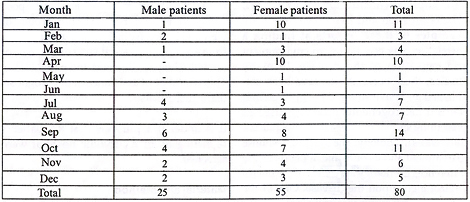
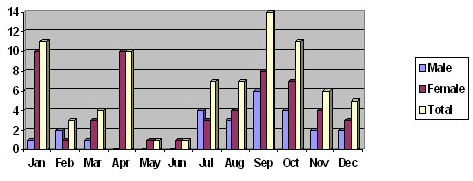
Figure 1. Incidence pattern of rheumatoid arthritis patients during one year
2. Dietary habits and serostatus
72 patients were simultaneously screened for their dietary habits and their serostatus through a qualitative method. Patients were questioned on their dietary habits in relation to their being vegetarian (lacto-vegetarian) or non-vegetarian. In the study group, over 65% of the patients were found to have a non-vegetarian dietary pattern (N= 47). The seropositive status was also reported higher (70%) among non-vegetarians compared to their vegetarian counterparts (30%).Table 2. Dietary habits of rheumatoid arthritis patients

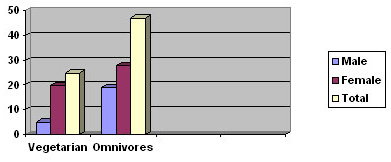
Figure 2. Dietary habits of rheumatoid arthritis patients
Table 3. Dietary habits and serostatus of rheumatoid arthritis patients

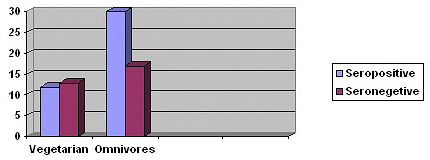
Figure 3. Dietary habits and serostatus of rheumatoid arthritis patients
3. Effects of weather
Only 68 patients in the study were able to evaluate any effect of weather in their disease presentation. Among these the group finding an association of weather to their symptom-profile was substantially bigger (70%) in comparison to those who were not able to find any noticeable change in symptoms as per weather changes.Table 4. Effects of weather on rheumatoid arthritis patients

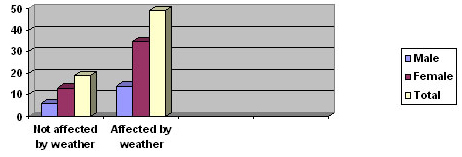
Figure 4. Effects of weather on rheumatoid arthritis patients
4. Deha prakriti and sattva
Only 40 patients were able to correctly answer the questionnaire designed to analyse ,deha prakriti (physical constitution) and sattva (psychological status). Among them, the vaata pitta sub-group dominated (55%), whereas pitta kapha and vaata kapha were almost equal. A sattva examination revealed the maximum patients to be from the Madhya and Avara sattva (50 and 45%), while Pravara sattva was reported only in a fraction of patients (5%).Table 5. Deha prakriti of rheumatoid arthritis patients

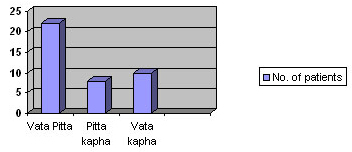
Figure 5. Deha prakriti of rheumatoid arthritis patients
Table. 6. Sattva status of rheumatoid arthritis patients

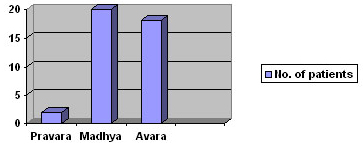
Figure 6. Satva status of rheumatoid arthritis patients
Discussion
Rheumatoid arthritis is one of the most perplexing syndromes in modern rheumatology(13). It has a variable presentation and differential activity pattern among different people, which leads to poor prognosis in some and near complete remissions in others ( 14). These differences are reflected in the differences in their psycho-physical composition according to Ayurveda i.e. dietary behaviour, different reactions to the environment, psychological states and prakriti. Identification of sub-groups in a heterogeneous population may be helpful (through counselling patients on modifying their diet and behaviour which may favourably alter the course of their disease) in a clinical as well as a social sense as this may give us an idea as to which group is responding well to therapy (15,16).References
1. Mcdougall J., Bruce B., Spiller G., Westerdahl J., Mcdougall M. Effects of a Very Low-Fat, Vegan Diet in Subjects with Rheumatoid Arthritis, JACM: 2002; Volume 8, Number 1: 71–5.2. Darlington L.G., Ramsey N.W., Mansfield J.R. Placebo-controlled, blind study of dietary manipulation therapy in rheumatoid arthritis. The Lancet 1986; 1:236–8.
3. Darlington L.G., Ramsey N. Diets for rheumatoid arthritis. The Lancet 1991; 338:1209 –10.
4. Kavanaghi R., Workman E., Nash P., Smith M., Hazleman B.L., Hunter J.O. The effects of elemental diet and subsequent food reintroduction on rheumatoid arthritis. Br J Rheumatol 1995; 34: 270–3.
5. Kjeldsen-Kragh J., Haugen M., Borchgrevink C.F., Laerum E., Eek M., Mowinkel P., Hovi K., Forre O. Controlled trial of fasting and one-year vegetarian diet in rheumatoid arthritis. The Lancet 1991; 338: 899–902.
6. Kroker G.F., Stroud R.M., Marshall R., Bullock T., Carroll F.M., Greenberg M., Randolph T., Rea W., Smiley R. Fasting and rheumatoid arthritis: a multicenter study. Clin Ecol .1984; 2: 137–44.
7. Panush R.S., Stroud R.M., Webster E.M. Food-induced (allergic) arthritis. Inflammatory arthritis exacerbated by milk. Arthritis Rheum 1986; 29: 220–6.
8. Parke A.L., Hughes G.R. Rheumatoid arthritis and food: A case study. BJM 1981; 282: 2027-9
9. Patberg W.R., Rasker J.J. Weather Effects in Rheumatoid Arthritis: From Controversy to Consensus. A Review. J Rheumatol 2004; 31: 1327-34.
10. Rastogi S., Singh R.H., Therapeutic potential of Satvavajaya therapy in management of amavata, Bull Indian Inst Hist Med Hyderabad. 1995; 25(1-2): 46-60.
11. Rastogi S., Singh R.H., A clinical study of the factors influencing therapeutic outcome in rheumatoid arthritis, JRAS Vol.2002; xxiii No.1-2:10-19.
12. Rastogi S., Singh R.H., Identifying the stress area for future research in Ayurveda — a demographic study. NAMAH, 21 Feb.1999; Vol.6, Issue 2: 20-8.
13. Perez-Maceda B., Lopez-Bote J.P., Langa C., Bernabeu C. Antibodies to dietary antigens in rheumatoid arthritis — Possible molecular mimicry mechanism. Clin Chim Acta 1991; 203: 153–65
14. Seignalet J. Diet, fasting, and rheumatoid arthritis. The Lancet 1992; 339: 168–9.
15. Rastogi S., Rastogi R., Singh R.H., What are we losing by ignoring Ayurveda? NAMAH 24th April 2006. Vol.14, Issue 1.
16. Rastogi S., Management of osteoarthritis through Ayurveda. Natural product radiance Sept.-Oct. 2006; Vol. 5: 348.
Dr. Sanjeev Rastogi is a Consulting physician at the LBS Govt. Eyurvedic College, Handia, Allahabad, India.
Share with us (Comments, contributions, opinions)
When reproducing this feature, please credit NAMAH, and give the byline. Please send us cuttings.
